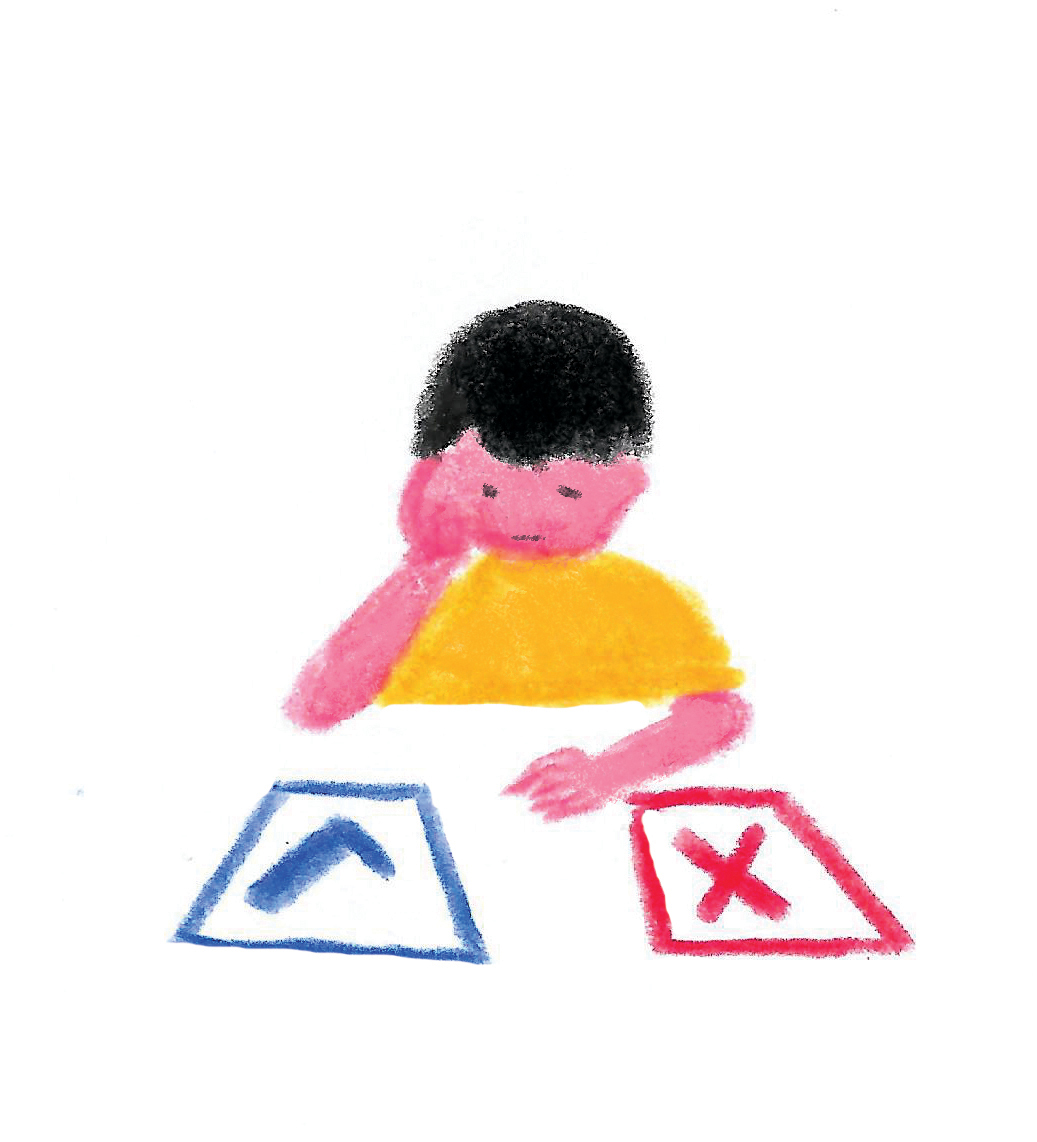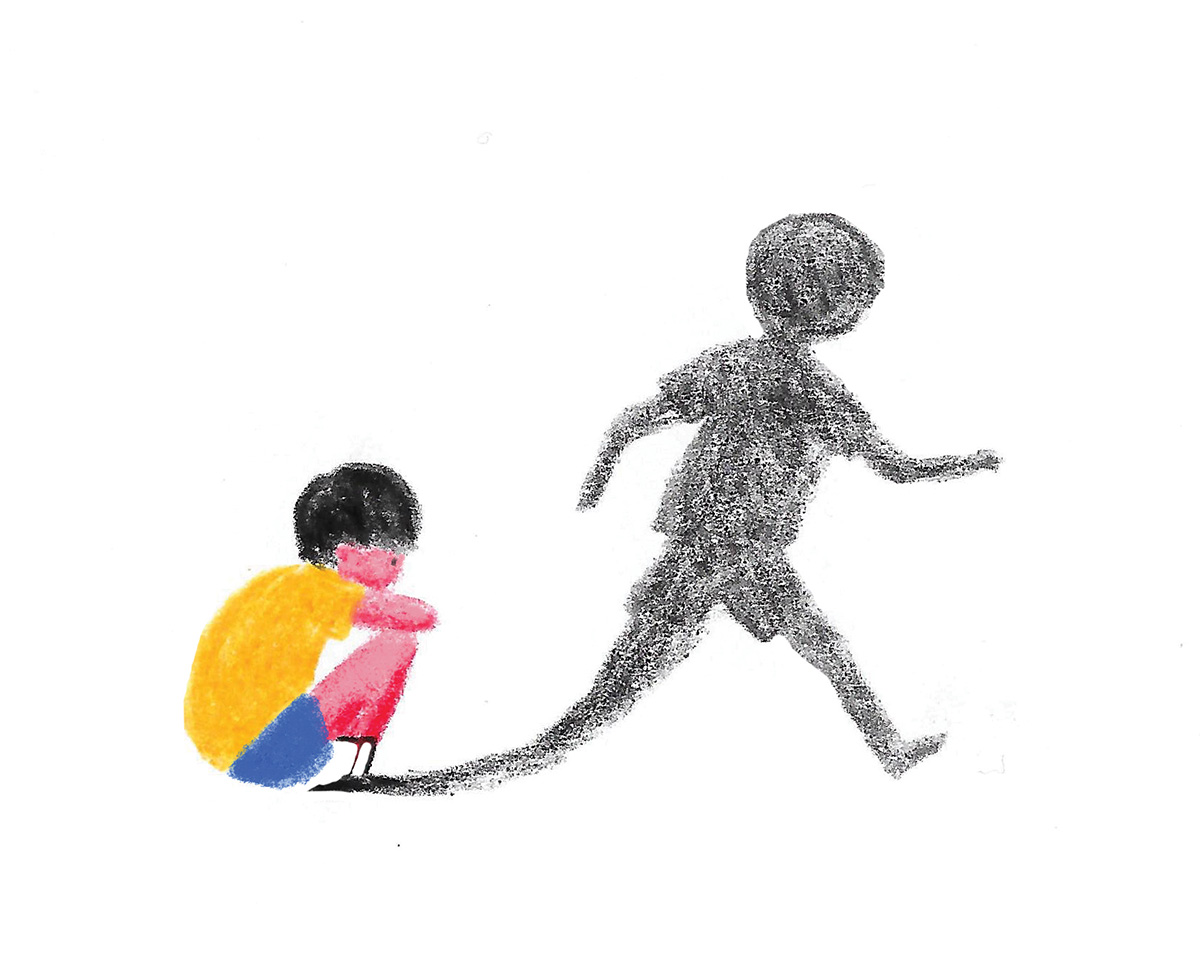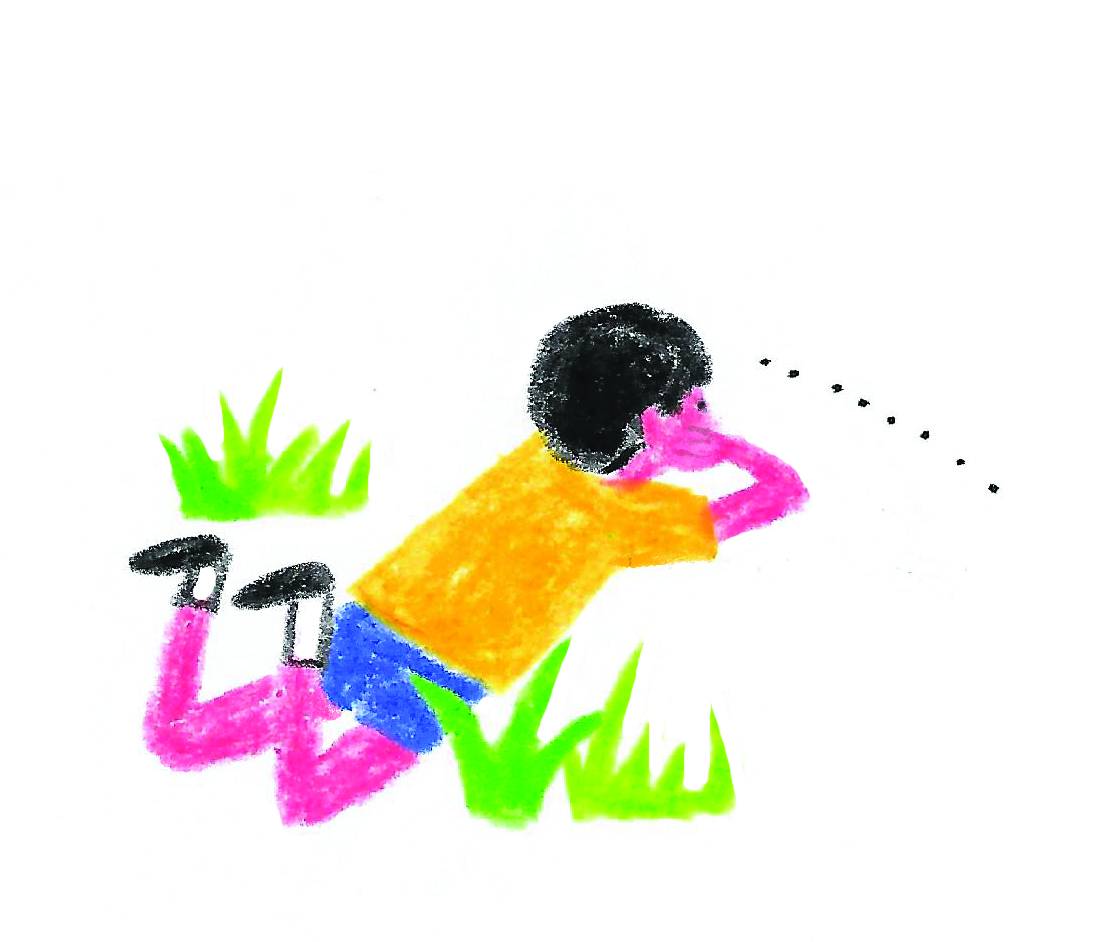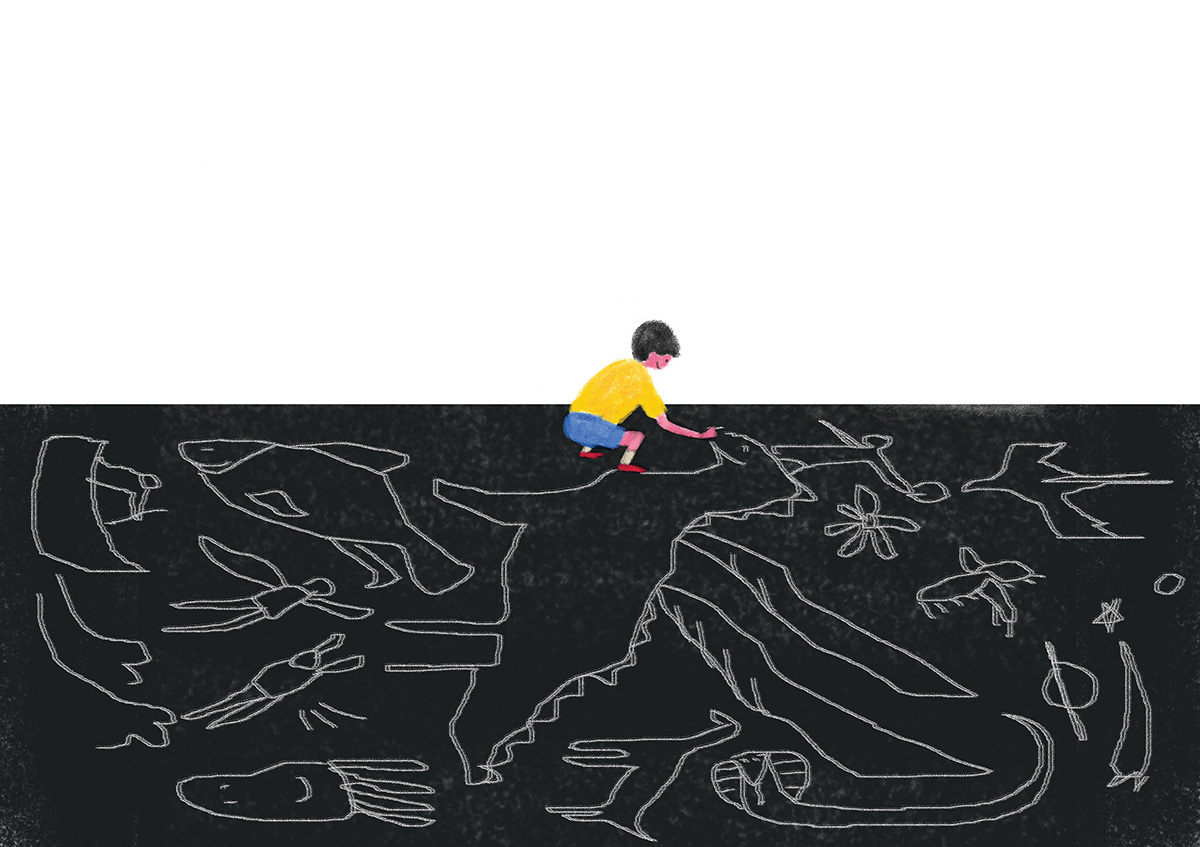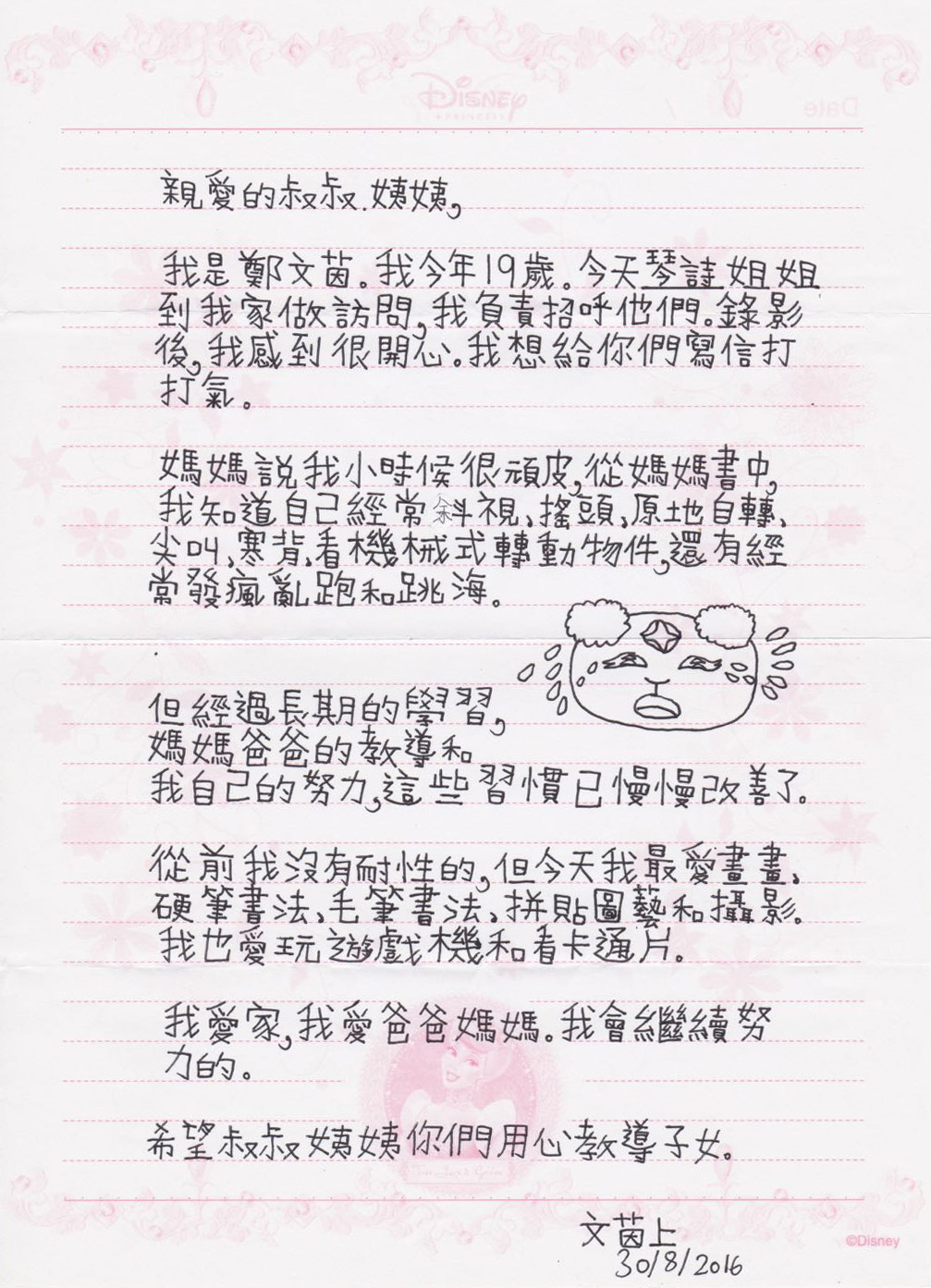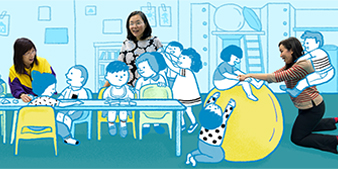Part III
Don't stand alone:Bring the Assessment Summary Home
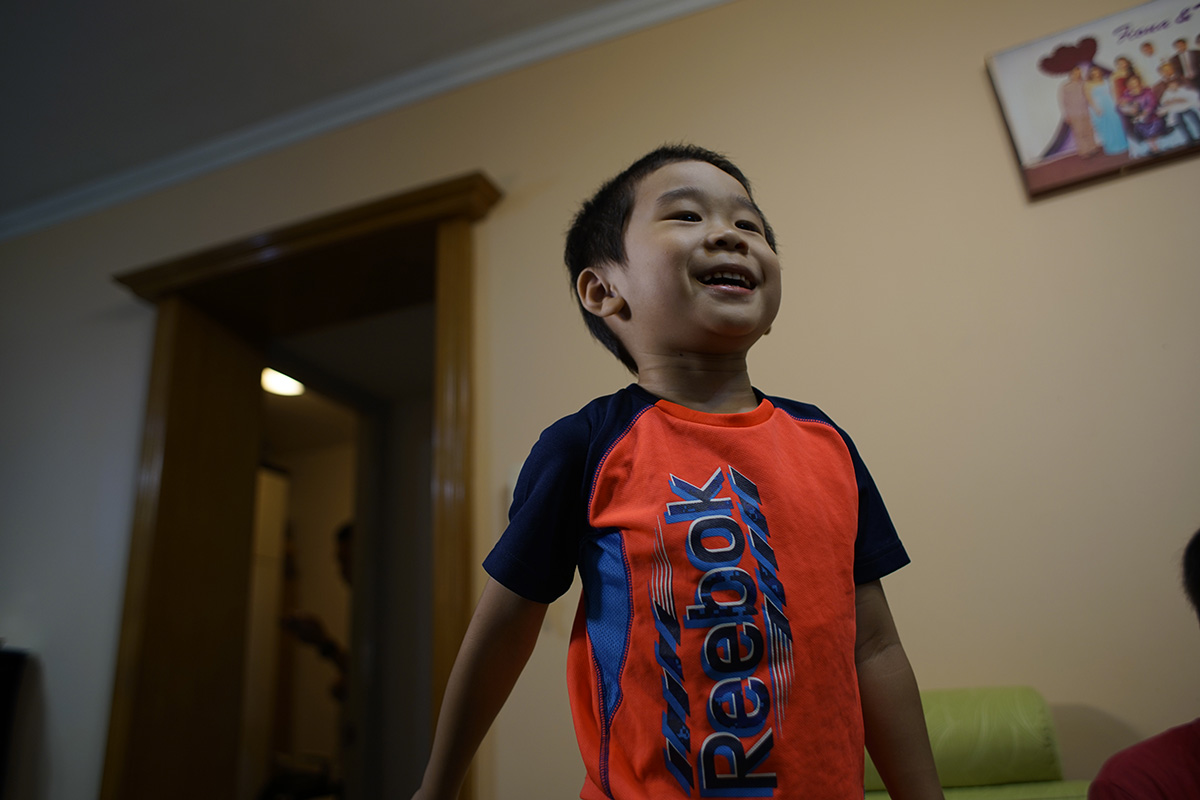
Three-year-old Hugo was not very talkative but he was so smart and lovely that others were drawn to him naturally. When his mum and dad were interviewed on the sofa, he could not stop hopping up and down like a little monkey. Hugo was diagnosed as developmental delay and his verbal comprehension was one year behind that of children of the same age. Once felt very useless and weak, his mum Maggie even lacked the energy to pick up his hand and take him out. An unspoken worry clouded his family – was the child doomed to be stupid?
"My son was inside me for ten months and I would take the blame for whatever happened to him. I cried to myself the moment I received the assessment, 'Damn! I must have done something wrong when I was pregnant with him or was my parenting too laid-back or not useful at all?'"
Even up until today, Maggie's eyes rim bright red from crying when she recalls. Perhaps only mothers can understand that feeling of guilt.
Fortunately, there is someone to stand by her side and calm her down at all times. Sam, her husband, is always there to soothe her nerves whenever she starts blaming herself. "I always comfort her that every child is unique. Some children learn faster and some slower – not everyone can be equally smart."

Hugo is closest to his father. Sam understands his son's developmental delay in his own way. "In our days, you were labelled as poor comprehension if you could not keep up with the progress of the class, but it was not such a big deal in the end. Take dictation, for example. You may fail the first two times, but you can surely make it after the tenth attempt, as long as you keep trying. As a man, you need to remain composed, or else your other half will be more vulnerable to fear than you are. Stay calm and figure out a solution together – even the biggest problem can always be solved."
No wonder Hugo's family was not stricken by the assessment summary, but found comfort from it instead.
Maggie says with a smile, "Thanks to the assessment – we finally know why Hugo is not as talkative as others and can stop worrying about it. Subsequent speech therapy sessions allow me to understand that Hugo is not stupid or dull – just that he may not grasp the meaning of the vocabulary. He has improved significantly since we start talking to him more often every day. One day, I felt down for no reason and Hugo suddenly came to embrace me and said, ‘I love you, mum!' At that very instant, my whole being melt in joy and none of my hardships mattered anymore."

A paper that weighs more than a marriage certificate
"Do you know the meaning of the word family? It stands for father, mother, i love you. This assessment summary adds a new page to our family. It also weighs more than a marriage certificate because it can test how much two people love each other and devote to the family," says Hester, mother of an autistic girl.
Her daughter Ariea, now 19 years of age, is skilled in cooking, photography, calligraphy, and even oracle bone writing. Her writings and paintings have won a number of awards. This family of three has been running the obstacle race for nearly two decades and Ariea would not have achieved so much if it was not for love.
"Ariea did not talk at all and was very stubborn when she was small. She was cranky all day long and often threw herself to the ground, flung around like a headless chicken, and bawled at the top of her lungs. Her social skills were worse than her already pathetic cognitive ability. Those were, as we learnt later, all typical symptoms of autism."
After shedding streams of tears, they had to pick either one of the two divergent paths – one was to carry on and the other was to give up. Hester describes, "The second option was out of the question. All we could do was to bite the bullet and keep walking with her."
The most petrifying moment is still fresh in her mind. "It was really depressing. We planned on having a nice holiday together by taking Ariea on a cruise, but she was screaming to jump into the sea. We had to wrestle with her to drag her back."
While they grew accustomed to public attention, they were gravely upset by some unexpected advices. "Ariea was diagnosed at one and a half years old. We met a speech therapist when we were on the waiting list of SCCC. To our surprise, she suggested Ariea to use a 'communication book'. Ariea just had to hand me a card with 'rice' written on it whenever she wanted food."
The therapist also claimed that Ariea could never communicate with others verbally and hinted her parents to stop their fruitless efforts. Enraged and anguished, they refused to accept these presumptions and offered more intensive training to Ariea. As a result, Ariea had learnt how to speak and write before starting primary school.
"The most touching moment for me happened in her Primary Three. One day, when she was home from school, she told me that her classmates snatched the squid snack she had taken to school. I was extremely happy because we had insisted on teaching her speak lest she would not know how to air her feelings to us. It would have been too tough if she could only keep everything to herself. I called her dad right away that day – not because of the snack, but to tell him that our efforts have paid off."
"For that reason, marital relationship plays a very important part. Raising a child is definitely not something that can be done alone. Being diagnosed with autism – so what? We just let her thrive in her domain as best as she can. All of us pursue after health and happiness and Ariea is no exception. As parents, we try hard to input and hope that she can respond with some output one day."
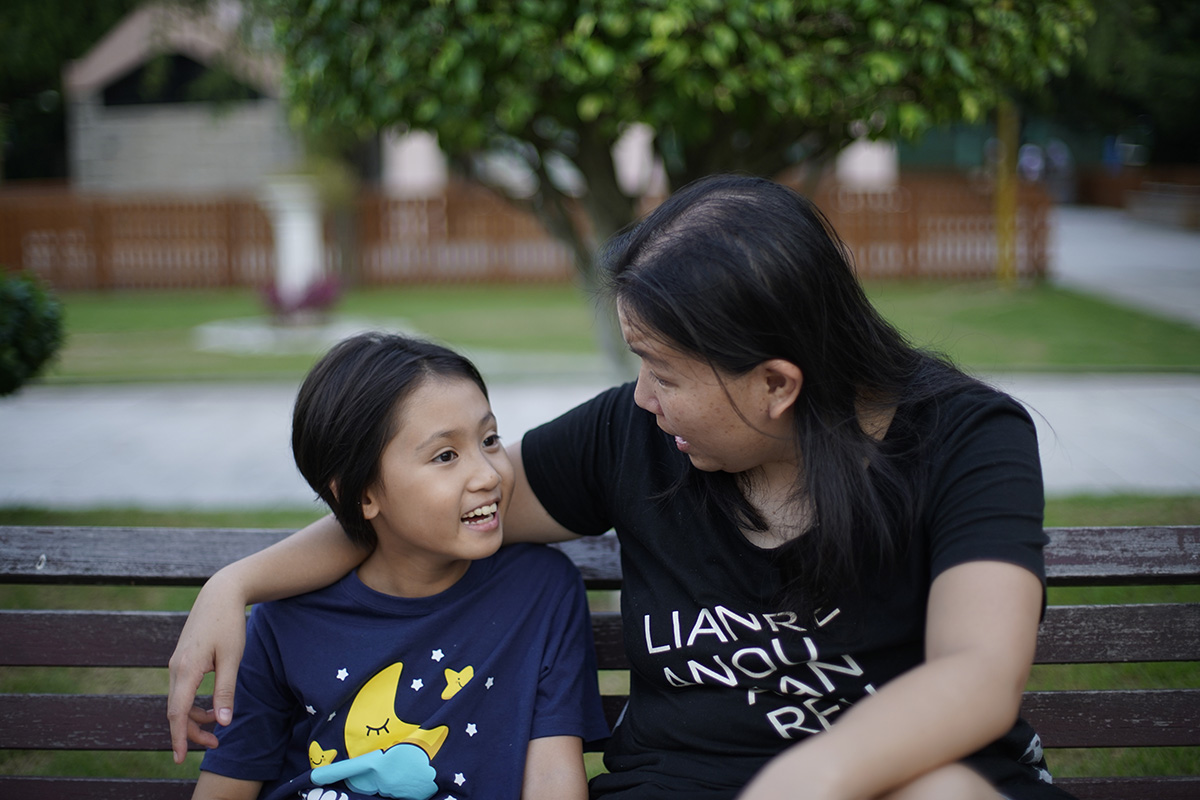
The eldest and the strongest backing
In some families, parents have to handle the emotions of four senior family members – the child's grandparents.
After knowing that the child is diagnosed with developmental disorder, parents always hesitate to break the news to the elders of the house lest they cannot understand or would rub things up the wrong way.
Moon's bright and cheery mum has always regarded her own mother as her pillar of life nonetheless. Over the years, Moon was suspected of autism spectrum disorder and subsequently attention deficit disorder. Tossed and turned by waves of challenges, Moon's mum almost lost her direction. Luckily, her own mum's words have always been her best tranquilizer, which keep her on her feet every time.
"My mum always gives me a pat on my shoulder and tells me not to worry whenever I need support and comfort the most." The allegedly confirmed diagnosis of AD/HD, for example, has almost driven her out of her mind. "First suspected autism and then AD/HD – what exactly could I do?"
Her mum kept a level head and consoled her, "It's alright – the two reports are not consistent with each other. Besides, a lot of children are deficient in attention and we seldom meet a child who can sit still for long. Moon is like a snail that requires more time to grow and you also need to give yourself some time to accept."
Grandma and grandpa were Moon's major caretakers at the time. Knowing Moon's condition, they took her to the park more often to make friends. "When I got home from work, my dad (Moon's grandpa) reported that Moon, albeit a bit intimidated by strangers at first, was willing to play with others eventually. He thought that autism might just be another word for shyness…what he said really helped to put me at ease."
Moon's family slowly regained their peace. They did not only keep an eye on Moon, but were also eager to take her to training and therapy. Moon's swift and significant progress over the course of just few years caught everyone by surprise.
Moon's mum says, "I was very worried that she could not adapt to school life or modern life initially. Autism and attention deficit were a big time mess…no friends, poor understanding of classroom teaching, low self-esteem due to incomprehension and fear of asking questions…who would have thought that Moon would turn out to be a completely different person now? Recently, I heard from her class teacher that Moon has made good friends in school. Not only did Moon enjoy chatting to her classmates, she was also enthusiastic in raising her hand to answer questions!"
How to tell the
elders at home…
Dr. Lucia Tsang, Clinical Psychologist of the CAS of the Department of Health, says that elderly may have difficulty grasping terminologies like attention deficit, autism spectrum, and dyslexia. When you take the report home, you can skip the name of the diagnosis and focus on describing the behavioural characteristics of your child's developmental disorder. For instance, our girl is so energetic that may cause her trouble in school or affect her school life.
"Grandparents tend to pay closer attention to this way of expression because they are eager to put their grandchild right. By doing so, we are more likely to solicit support from the elders and inform them of the things they, as caretakers, need to do more or avoid. A synchronised and consistent model of parenting is significantly instrumental to the therapy and training of the child.
Should I tell my kid…
- Parents should refer to the comprehension ability of the child and explain to him/her, in simple terms, the need of accepting training.
- Young child may not need to understand the designation of diagnosis. Parents may describe the behavioural characteristics of the developmental disorder to the child and help the child to understand the challenges ahead.
- Parents should encourage the child to accept and participate in the therapy or services subsequent to the diagnosis and improve self-care ability .
- Parents should respond to questions from the child positively or look for information relevant to the disorder with him/her to show support and acceptance.
Source: Department of Health, Hong Kong
